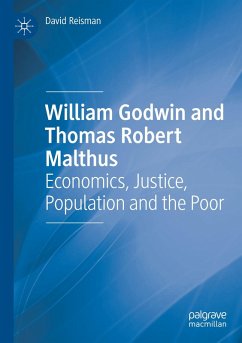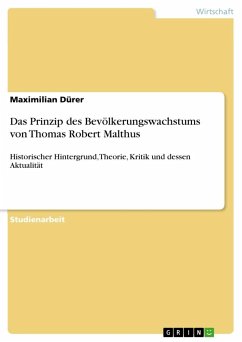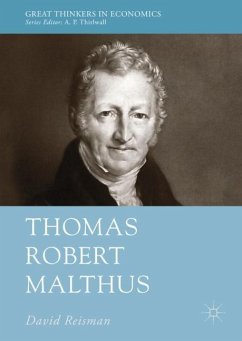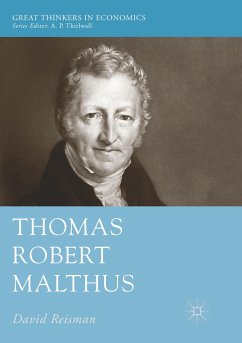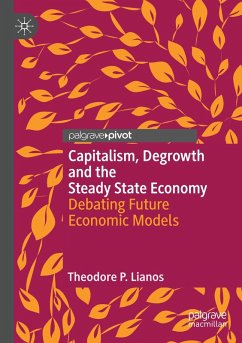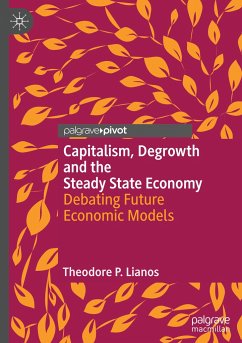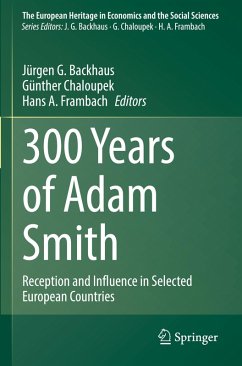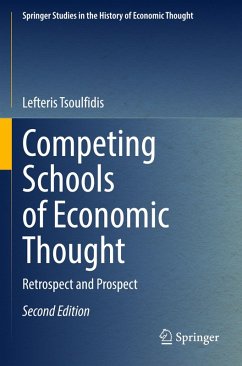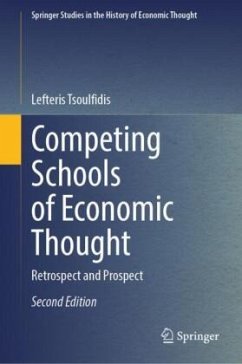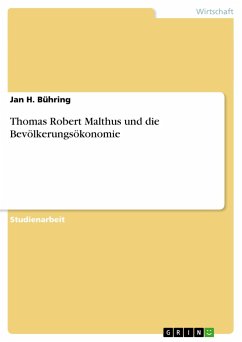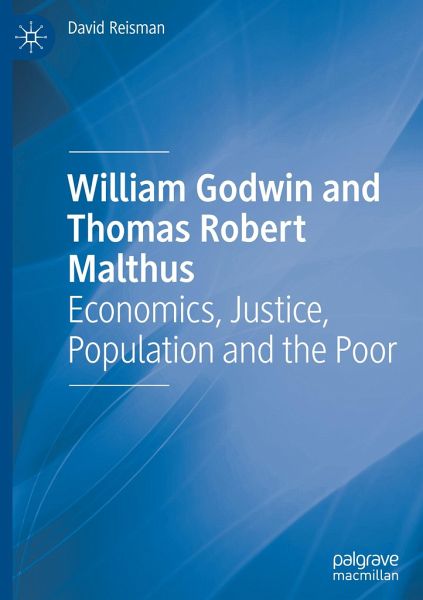
William Godwin and Thomas Robert Malthus
Economics, Justice, Population and the Poor
Versandkostenfrei!
Versandfertig in 6-10 Tagen
91,99 €
inkl. MwSt.
Weitere Ausgaben:

PAYBACK Punkte
46 °P sammeln!
This book explores the lifelong dialogue between Thomas Robert Malthus and the libertarian anarchist William Godwin. Shedding light on important topics in the history of economic and political thought, it examines Godwin's rejection of the new industrial order and his insights into a post-acquisitive, post-conflictual future. It shows that Malthus felt Godwin had neglected the ever-increasing pressure of population on scarce food and that control could not be superseded by automaticity so long as the productivity of the land was limited by the law of nature.Godwin and Malthus situated their vi...
This book explores the lifelong dialogue between Thomas Robert Malthus and the libertarian anarchist William Godwin. Shedding light on important topics in the history of economic and political thought, it examines Godwin's rejection of the new industrial order and his insights into a post-acquisitive, post-conflictual future. It shows that Malthus felt Godwin had neglected the ever-increasing pressure of population on scarce food and that control could not be superseded by automaticity so long as the productivity of the land was limited by the law of nature.
Godwin and Malthus situated their views on population in the broader context of individual choice, property rights, normative constraint and the status of the poor. Godwin and Malthus were committed to an economy that was equitable as well as efficient. Their proposals for social betterment make the book relevant to contemporary debates even as it sheds light on two giant thinkers of the past.
Godwin and Malthus situated their views on population in the broader context of individual choice, property rights, normative constraint and the status of the poor. Godwin and Malthus were committed to an economy that was equitable as well as efficient. Their proposals for social betterment make the book relevant to contemporary debates even as it sheds light on two giant thinkers of the past.



